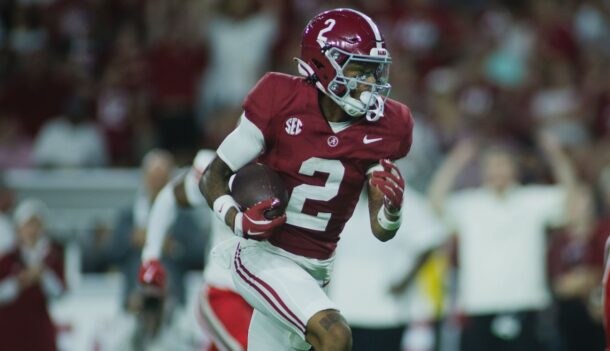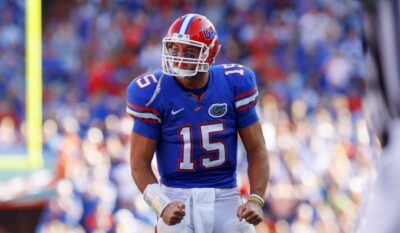
Goodbye to Joe B. Hall, the maintainer who became a Kentucky legend
By Joe Cox
Published:
Joe B. Hall passed away Saturday morning at the age of 93 and like most everyone else who knew him in any capacity, I’ve been thinking about exactly what Hall’s career means.
In trying to deconstruct the history of Kentucky basketball, I’ve often divided it into neat cycles. The head coaching order goes something like this: innovator, maintainer, program wrecker. Rinse and repeat. That’s Rupp (innovator), Hall (maintainer), Sutton (wrecker), Pitino (innovator), Tubby Smith (maintainer), Billy Gillispie (wrecker), Calipari (innovator). But even if that cycle is accepted as true, there is more to the story. Sometimes, a maintainer is more than a maintainer.
One of the more consistent adages in sport is this: Don’t follow the legend. Follow the guy who follows the legend. Why? Let’s talk about Gene Bartow at UCLA (John Wooden), or consider Bill Guthridge from North Carolina (Dean Smith), probably ask Jon Scheyer at Duke in a few years. It’s not just a college basketball phenomenon. Whatever happened to Phil Bengtson (followed Vince Lombardi to the Packers) or Tim Floyd (followed Phil Jackson with the Bulls)? Massive shoes to fill is what happened. How do you top greatness? As much as any name on this list, that’s the trap Joe B. Hall faced. And defeated.
Hall coached 13 seasons at Kentucky. He won a national title in 1978, went to 3 Final Fours, and rolled up a 297-100 record before he stepped down after a Sweet 16 run with an 18-13 team in 1985. He was 56 years old then. Among many accomplishments, Hall had a heck of a time with the remaining 37 years of his life. He was a TV analyst, a radio talk show host, and a genuine ambassador for Kentucky basketball well into his 90s.
It was as a radio talk show host that I got to know Hall, or at least felt like I did. I was 4 years old when he retired, and have no first-hand memories of Coach Hall. But in 2004, he began a daily radio show with retired Louisville coach Denny Crum that immediately intrigued even casual fans. It was like Reagan and Gorbachev or Tupac and Biggie. Except, of course, it wasn’t at all. Hall and Crum were friends, and over the course of a decade working together, they clearly became even better friends.
The show was fascinating. Crum was the guy who knew something about everything. If some caller brought up Alaskan fishing, Crum knew all about it. The former Louisville coach has lived a full and interesting life. Joe B. Hall, on the other hand, knew about people. After the caller talked about Alaskan fishing, he’d admit that his brother had known Joe B. back in the mid-70s, and Joe would end up cutting him off and talking about the good time he’d had at a basketball camp with the brother and ask about him by name. Crum seemed to never forget a fact. Joe B. seemed to never forget a person.
When a friend and I decided to write a book about the Kentucky/Louisville rivalry in the early 2010s, we agreed at the outset, we had to have Coach Hall and Coach Crum on board. Coach Crum was readily contacted, invited us to his office, and answered every question we could throw at him. Getting to Coach Hall wasn’t exactly harder, but it was a little more circuitous.
A friend in Lexington told me she had lunch with Hall on a semi-regular basis and gave me his number. “Let me warn you about Joe,” she said with a smile. “We go to lunch and somebody will come over and say, ‘Hey, Coach Hall, tell me, what do you think about thing X?’ And Joe will smile patiently and say, ‘I really don’t know much about that. Tell me, what do you think about it.’ The visitor will spill his guts, Joe will nod and listen and when the guy walks off, Joe will chuckle, lean over to me and say, ‘Yeah, I heard all about that six months ago.'”
Sure enough, when I called Coach Hall, he was accommodating, if a little vague. I told him who I was and what I wanted, saying I had some questions about the UK/UL games he coached in. He was agreeable, but cautioned me, “Joe, I’ll try to help, but I can’t remember everything.” I told him that was fine, and I was glad to talk about whatever he did remember. Within a few minutes, he was talking about a specific game in 1983, with details about score, time remaining, and personnel issues his UK team was facing. Joe’s memory was better than fine, and like Crum, he was astonishingly helpful. He just knew how to deal with people.
It’s certainly appropriate that Joe B. Hall survived until UK honored Tubby Smith a few weeks ago. The two “maintainers” in my program overview share plenty in common. Both won national titles, both now have banners honoring them in Rupp Arena, and while neither was exactly a glamorous coach, both well understood both the Xs and Os of the game of basketball and probably more important, both were masters of dealing with the people behind the game.
It’s doubly appropriate because Hall quietly paved the way for Smith. After Rupp, often decried now as a racist, Kentucky’s program was at least behind on matters of race. Rupp had recruited a few African-American players, but Hall increased that trend, drawing in the players who would form the soul of Kentucky’s 1978 championship team. Hall also hired Leonard Hamilton as an assistant coach, the first African-American basketball coach in UK history.
Few will remember, but Hall also was ahead of his time in international basketball, helping spread the game far beyond America’s borders with extensive coaching and teaching work both in foreign countries and of foreign visitors to the United States. He even led a tour with the Harlem Globetrotters. Joe B. Hall loved basketball and loved sharing his love of the game.
Coaching in the shadow of Rupp, broadcasting with Denny Crum, Hall sometimes faded into the background. He was everybody’s kindly great-uncle, ready with a story and a smile. Except that he actually was an accomplished and ambitious man and a master of the unending public relations grind of UK basketball. Joe B. Hall might allow people to think he was just a folksy old country guy. But he was the genuine article. Born in Kentucky, lived in Kentucky, played (briefly, and he was the first to tell you, not especially successfully) at Kentucky, coached at Kentucky, made possibly a million friends in Kentucky, passed away Saturday morning in Kentucky.
The first time I met Coach Hall was an appearance on his radio show with Coach Crum, promoting my first book, 100 Things Wildcats Fans Should Know and Do Before They Die. During a commercial before we went on the air, he sat flipping through the book, looking through names of players who he played with, other players he coached, and other coaches he mentored. I felt honored, but I also felt more than a little unworthy.
“You don’t have to read it,” I thought, “You have lived it. You are it.”
There may be more maintainers, if my cyclic theory holds, but there will never be another Joe B. Hall.
Joe Cox is a columnist for Saturday Down South. He has also written or assisted in writing five books, and his most recent, Almost Perfect (a study of baseball pitchers’ near-miss attempts at perfect games), is available on Amazon or at many local bookstores.







